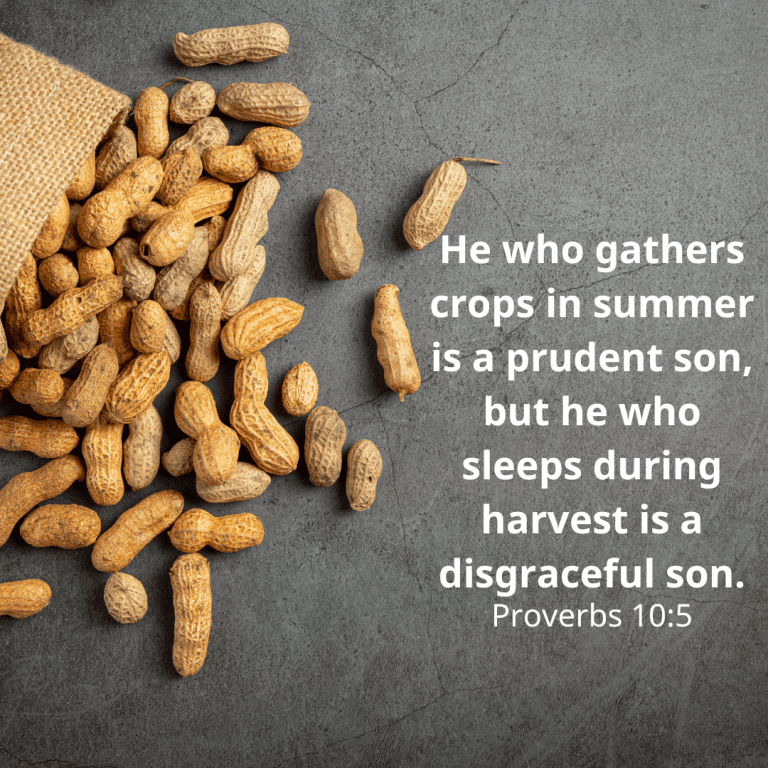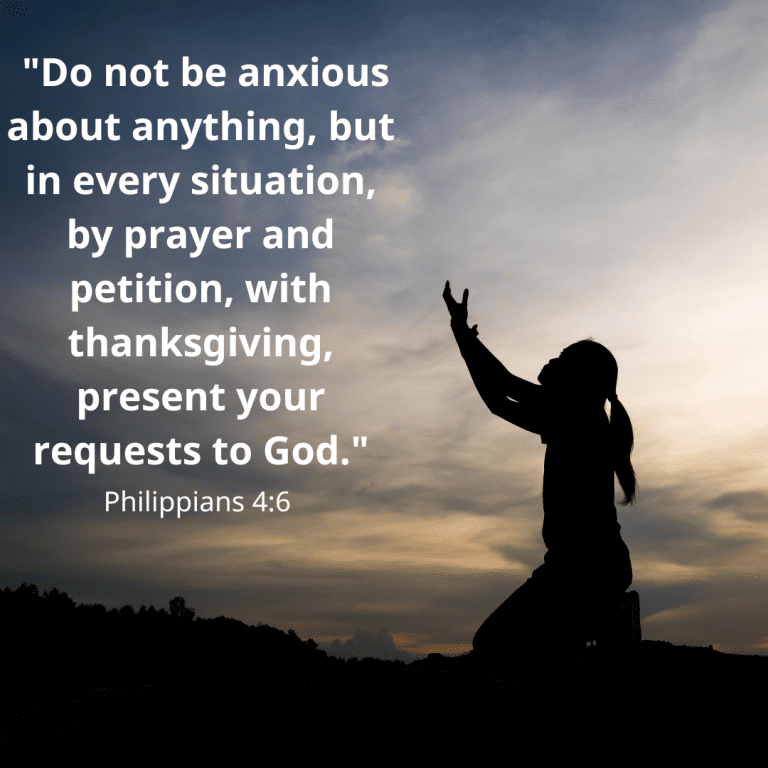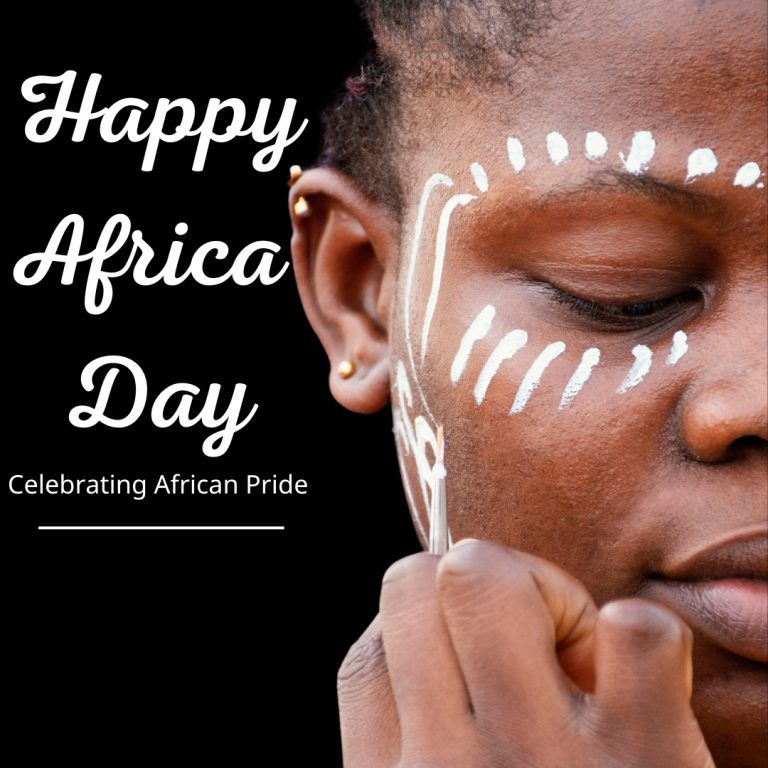1 Children who are under age are no better off than slaves, even though everything their parents own will someday be theirs. 2 This is because children are placed in the care of guardians and teachers until the time their parents have set. 3 This is how it was with us. We were like children ruled by the powers of this world.
4 But when the time was right, God sent his Son, and a woman gave birth to him. His Son obeyed the Law, 5 so he could set us free from the Law, and we could become God's children. 6 Now that we are his children, God has sent the Spirit of his Son into our hearts. And his Spirit tells us that God is our Father. 7 You are no longer slaves. You are God's children, and you will be given what he has promised.
Paul's Concern for the Galatians
8 Before you knew God, you were slaves of gods that are not real. 9 But now you know God, or better still, God knows you. How can you turn back and become the slaves of those weak and pitiful powers? 10 You even celebrate certain days, months, seasons, and years. 11 I am afraid I have wasted my time working with you.
12 My friends, I beg you to be like me, just as I once tried to be like you. Did you mistreat me 13 when I first preached to you? No you didn't, even though you knew I had come there because I was sick. 14 My illness must have caused you some trouble, but you didn't hate me or turn me away because of it. You welcomed me as though I were one of God's angels or even Christ Jesus himself. 15 Where is that good feeling now? I am sure if it had been possible, you would have taken out your own eyes and given them to me. 16 Am I now your enemy, just because I told you the truth?
17 Those people may be paying you a lot of attention, but it isn't for your good. They only want to keep you away from me, so you will pay them a lot of attention. 18 It is always good to give your attention to something worthwhile, even when I am not with you. 19 My children, I am in terrible pain until Christ may be seen living in you. 20 I wish I were with you now. Then I would not have to talk this way. You really have me puzzled.
Hagar and Sarah
21 Some of you would like to be under the rule of the Law of Moses. But do you know what the Law says? 22 In the Scriptures we learn that Abraham had two sons. The mother of one of them was a slave, while the mother of the other one had always been free. 23 The son of the slave woman was born in the usual way. But the son of the free woman was born because of God's promise.
24 All of this has another meaning as well. Each of the two women stands for one of the agreements God made with his people. Hagar, the slave woman, stands for the agreement that was made at Mount Sinai. Everyone born into her family is a slave. 25 Hagar also stands for Mount Sinai in Arabia and for the present city of Jerusalem. She and her children are slaves.
26 But our mother is the city of Jerusalem in heaven above, and she isn't a slave. 27 The Scriptures say about her,
“You have never had children,
but now you can be glad.
You have never given birth,
but now you can shout.
Once you had no children,
but now you will have
more children than a woman
who has been married
for a long time.”
28 My friends, you were born because of this promise, just as Isaac was. 29 But the child who was born in the natural way made trouble for the child who was born because of the Spirit. The same thing is happening today. 30 The Scriptures say, “Get rid of the slave woman and her son! He won't be given anything. The son of the free woman will receive everything.” 31 My friends, we are children of the free woman and not of the slave.
1 Ŋiinyi ŋǝni-ŋwɔ, ŋgwa kwǝṯi mɔrthathi ki-ŋɔr-la ŋǝthi ṯǝrnyin, mɔŋw-tǝ oro kinnǝni tɔr tokwɔɽony, ǝṯɔŋweere ṯamthɔ kwɔwaaya-la mac, nɔrɔ-va kinnǝni kwomne kwuuŋwun tok tatap. 2 Nǝ kinaŋw nɔrɔŋw kinnǝni tokwɔɽony, nǝr naani kila lǝṯi aŋraci ŋunduŋw, nǝ liwǝkiil luuŋwun tok mindaŋ mǝ laamin iila lǝllicǝ ṯǝrnyin.
3 Nǝrṯoroŋw nyiiŋǝ tok, kinaŋw nɔrɔr nyɔr nyokwɔɽony, nǝroro lɔwaay lǝthi rigɽim rǝthi ṯurmun. 4 Laakin mǝ lɔɔmor ɔppatha lɔvthanna, nǝ Allah ɔɔsa tɔɔrɔ tuuŋwun, nɔŋw iila tilŋinna ŋelŋe-ŋi ŋǝthi kwaaw, nɔŋw nanni kwimthi Sherii@a. 5 Mindaŋ ethisi kilǝthi kila linaanɔ ki-rii-na rǝthi Sherii@a, mindaŋ mǝroro nyɔr nyǝthi Allah.
6 Nǝ kaka nɔrɔŋa-gwɔ nyɔr nyuuŋwun, nǝnyji Allah usicǝ Ṯigɽimǝ ṯǝthi Tɔr tuuŋwun ki-rɔgwor-na rǝri ǝṯɔŋw aari-ŋwa, “Abba! Papa!” 7 Ŋwɔṯaŋw, neere oro lɔwaay kwokwony mac, laakin noro nyɔr nyir hɔrr. Nǝ kaka mǝgwɔ oro nyɔr nyuuŋwun, ǝŋǝsi Allah inḏǝthǝ ŋgwa tatap kwǝthiŋw kwǝthi nyɔr nyuuŋwun.
Bɔɔlɔs mɔŋgwɔ pinnici lizi lǝthi Ghalaaṯiiyya-ŋw ṯɔgwor-na.
8 Kerreny tuk niti nilŋithiŋǝ kinnǝni Allah mac, nǝ nanni ki-ŋiwaay-na ŋǝthi riiɽu riti rir rerrem mac. 9 Laakin kire-kirem-ŋgwɔ tǝ, ŋaaŋa limǝ elŋe Allah, nǝ ŋǝsi ǝccǝŋw Allah wɔmǝ-ŋǝsi elŋe kirem tok. E-ta ŋaaŋa lotho linaŋna ethi aaɽi kithaay, ethaaɽitha ki-rigɽim-nǝ kira rajla cige-cigep riti rǝthi faayitha-na kweere mac? Ŋaaŋa lotho linaŋna ethoro lɔwaay leeŋen kwokwony? 10 Ǝṯisi kettice yǝy ŋǝthi ŋwaamin ŋweere ŋweere, yǝwǝ-yi, nǝ ŋwɔɔmɔr-ŋa yithlǝ-yi tok! 11 Nyii-ŋgwɔ kwɔthiinya etheese ŋɔma ŋiinyi ŋimǝ kiirannalɔ domony daŋgal-na.
12 Liyǝŋgǝri, nyii-ŋgwɔ kwutuurǝccǝ-ŋǝsi-lɔ tur mindaŋ ethi aaɽanni nyuŋwɔ, kaka-ṯǝ naaɽinnany-gwɔ ŋaaŋwɔsi. Ŋiti ŋeere ŋimǝr-nyji ǝkkici pir mac. 13 Ŋaaŋa lilŋithi rac ethaarɔŋw, nyii kwuumǝy kinaŋw nǝccǝ-ŋǝsi bǝshirǝ-lɔ kwon-kwon. 14 Nǝ nipinnǝŋǝ-vǝ kinnǝni rɔgwor-na tok ŋiɽaŋal-ŋi ŋǝthi kimǝthi kiinyi, nǝrnyeere ǝrrǝlɔŋw mac. Laakin nǝr-nyii aalanni daŋgal-nǝ kaka melekǝ kwǝthi Allah, kaka-ṯǝ nǝŋgi-gwɔ aalanni Kwɔrɔstɔ-ŋw kwǝni Yǝcu. 15 Ŋaaŋa lǝni laamina beṯṯen! Aatha kwɔrɔ kwǝrrinnǝ? Ŋɔnḏɔny-ŋi ŋɔ kii ŋǝni ŋaalɔ ŋǝniŋw, ǝŋgiroro mǝmkin ǝŋgir-nyii ǝllicǝ yǝy yaalɔ ethisi inḏǝthǝ nyuŋwɔ. 16 E-ta nyimoro ṯuwǝn ṯaalɔ kaka nandica-ŋǝsi-gwɔ ŋiɽaŋali ŋir rerrema? 17 Nǝ kila lǝṯi-ŋǝsi ṯǝccici ŋɔma ethi ǝgini ŋaaŋwɔsi, laakin nǝ karath keeŋen ere ɔvthanni mac. Ŋa tatap ŋigǝkṯicǝrsi nda, nǝr naŋni ethi uɽǝthǝ ŋaaŋwɔsi-na nyii-gi, mindaŋ ǝŋgǝthi sɔɔrɔma kweeŋen. 18 Ŋani ŋɔvthanna rac ŋǝthi ṯǝginǝ mɔŋwɔni ṯǝrrinǝ sǝbǝb-gi kwisaaw, ŋirṯaŋw rerrem dok-dok, nǝreere ǝniŋw mǝnyii naani yǝy-lɔ ṯɔɽɔk mac. 19 Kwelle kwiinyi, ŋijma ŋǝni ŋaalɔ ŋɔ ŋiyathi-nyii kwokwony mindaŋ mǝ kenne Kwɔrɔsto-ŋw ki-rɔgwor-nǝ raalɔ! 20 Nyii kwǝthi sɔɔrɔma beṯṯen ethi naani yǝy-lɔ ŋaaŋa-li kire-kirem, mindaŋ ǝŋginy ǝthi ŋɔma ethi urlǝ ṯɔgwor-lɔ ṯiinyi, kaka nǝniny-gwɔ kwippinnǝ ṯɔgwor-nǝ tig-tig ṯǝni ŋaaŋa.
Mǝthǝl kwǝthi Haajar-ŋǝ Saara-gi.
21 Andicar-nyii-ṯi ŋaaŋa kila linaana ethi aaɽitha ki-hɔkwɔm-na wǝthi Sherii@a. Ŋaaŋa liti limǝ neŋne mac-a, Sherii@a kwandisa nɔŋywaari tha? 22 Ŋɔlɔɔthɔna-pa ŋaarɔŋw, Ibraahiim kwǝthi nyɔɔrɔ nyiɽǝn nyir nyoŋwor, tette tǝthi kwaaw kwir kwɔwaay, nǝ tithaathɔ tǝthi kwaaw kwir hɔrr. 23 Nǝr ilŋitha tɔɔrɔ tǝthi kwɔwaay ṯǝrṯiib-thi ṯǝṯir-thi ilŋitha nyɔɔrɔ. Laakin tɔr tǝthi kwaaw kwir hɔrr tǝ, nǝr ilŋitha wa@ḏ-yi wǝthi Allah. 24 Ŋiɽaŋal ŋɔ ŋir kaka suurǝ. Laaw kɔlɔ lir ndǝn lir kaka wa@ḏ wuɽǝn. Kwette nɔŋworo kwaaɽinna Ayinɔ wǝni Siinaa, kwǝṯi elŋe nyelle nyǝthi ŋɔwaay; nǝ Haajar oro. 25 Haajar kwɔrɔ Ayin wǝni Siinaa wɔnaanɔ ki-bǝlǝḏ kwǝthi nyǝthgwu, nɔŋworo suurǝ kwǝthi mǝḏiinǝ kwǝni Urshaliim, kaka a-naanɔ-ŋgwɔ ki-ŋɔwaay-na nyelle-nyi nyuuŋwun tatap. 26 Laakin Urshaliim kwǝthi ki-leere-naŋw nɔŋworo hɔrr, kwundǝr-ṯǝ kwir ayya kwǝri. 27 Kaka nɔlɔɔthɔnar-gwɔ ŋaarɔŋw,
“Aamina ŋa kwir kwɔɔrɔm kwiti kwǝṯi elŋe mac!
Ɔppɔna a ṯiŋaṯṯa ṯiiyǝ-lɔ kwaamina,
ŋa ŋgwa kwiti kwiccinǝ ŋijma-ŋi ŋǝthi ŋelŋe mac.
Kaka nǝthi-ŋgwɔ ŋgwa kwɔṯayyar-lɔ nyelle nyuuru,
ethi ŋgwala kwɔnannir kwɔlen-gi.”
28 Nǝ kirem tǝ liyǝŋgǝri, ŋaaŋa lir nyelle nyǝthi ṯigittatha kaka Is-haag-ŋwɔ. 29 Nǝ ki-lɔɔmɔr-la-ṯǝ kila, nǝ tɔr kira tilŋithir ŋelŋe ŋir-ga ŋǝthi nyelle tatap, nɔŋw ǝwɽi yǝy-lɔ kira tilŋithir Ṯigɽim-thi ṯǝthi Allah. Nǝ nǝrṯǝ oroŋw tok kire-kirem-ŋgwɔ. 30 Laakin Kiṯaab Kirllinǝlɔ ter kaari-tha? Kaari-pa-ŋwa, “Ruttǝ kwɔwaaya kithaay tɔr-ri tuuŋwun; kaka niti ninḏi-gwɔ tɔr tǝthi kwɔwaay ethi mɔrthathi ki-ŋɔr-la tɔr-ri tǝthi kwaaw kwir hɔrr mac.” 31 Ŋwɔṯaŋw liyǝŋgǝri, a kwiti kwirir nyelle nyǝthi kwɔwaay mac, laakin niroro nyelle nyǝthi kwaaw kwir hɔrr.




